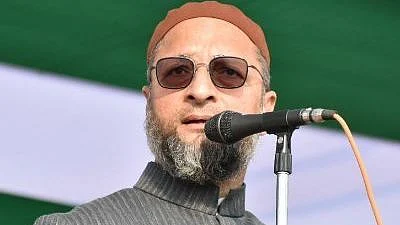The Uttar Pradesh government on Wednesday, 31 August, indicated that it will conduct a survey of 'unrecognised madrassas' in the state, in a bid to "gather information about number of teachers, curriculum, and basic facilities available there, among others."
According to a statement by the Minister of State for Minority Affairs, Danish Azad Ansari, the survey will be conducted in accordance with the requirement of the National Commission for Protection of Child Rights (NCPCR).
"During the survey, details such as name of madrassa and the institution operating it, whether it is running in a private or rented building, number of students studying there, and information regarding facilities of drinking water, toilet, furniture, and electricity supply will be collected," news agency PTI quoted the minister as saying.
However, in a response on Thursday, All India Majlis-e-Ittehadul Muslimeen (AIMIM) chief Asaduddin Owaisi censured the move, saying that the UP administration was infringing on the rights of Muslims.
"Private madrassas are protected as per Article 30, then why has the UP government ordered the survey? It's not a survey but a mini-NRC. Some madrassas are under the UP madrassa board. Some are private. Government can't interfere with our rights under Article 30. They want to harass Muslims," Owaisi stated.
'Source of Income, Information on Curriculum to be Gathered': UP Minister
In an interview with PTI, Ansari stated that the government's aim is to collect information on unrecognized madrassas.
Further, information regarding number of teachers in the madrassa, its curriculum, source of income and its affiliation with any non-government organisation (NGO) will also reportedly be gathered.
At present, there are a total of 16,461 madrassas in Uttar Pradesh, out of which only 560 have been provided government grants. No new madrassas have been recognised in the state in the last six years.
On Wednesday, the state minister added that in case of disputed management committee in madrassas or absence of any member of the committee, the madrassa principal and district minority welfare officer will be able to make appointments from the dependent quota.
(With inputs from PTI.)
(At The Quint, we question everything. Play an active role in shaping our journalism by becoming a member today.)
